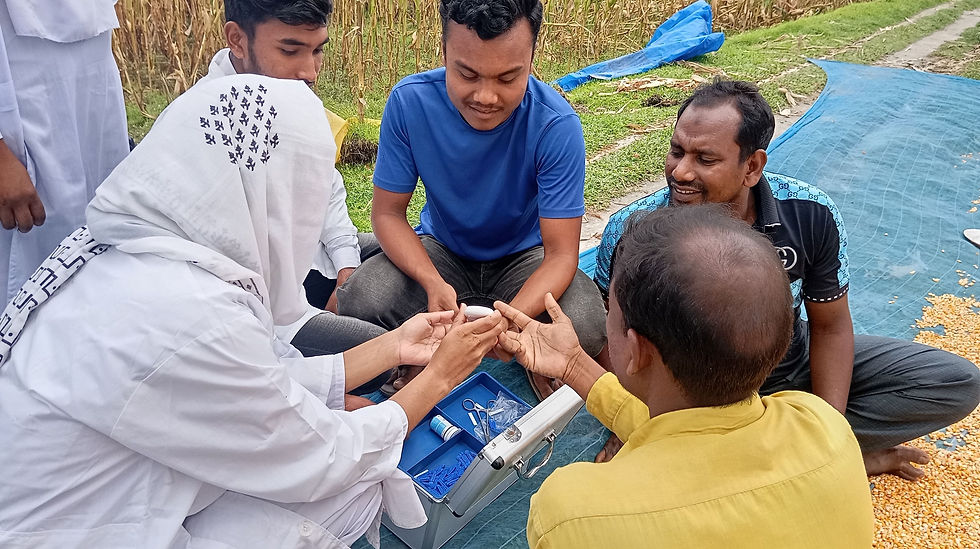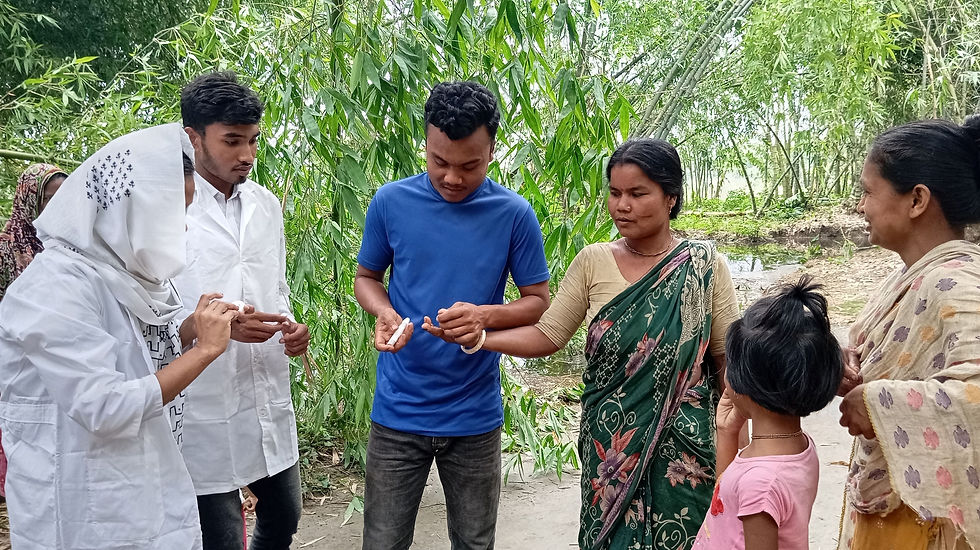- Aug 7, 2025

In Bangladesh over 10 million adults live with diabetes and this number continues to rise. In rural areas it is difficult to deliver screening programs due to shortage of health care providers and outreach is often non-existent. Rabiul Islam, head of Oasis for Posterity recently sent photos from the weekly paramedic program offered by the OfP Healthcare Centre.

A trained paramedic, supported by BHP, provides blood glucose tests and prevention advice for Balagram community members in their homes and workplaces. She also trains OfP volunteers who can offer basic follow-up care at the chronic illness drop-in clinic held in OfP’s vocational college nearby.


